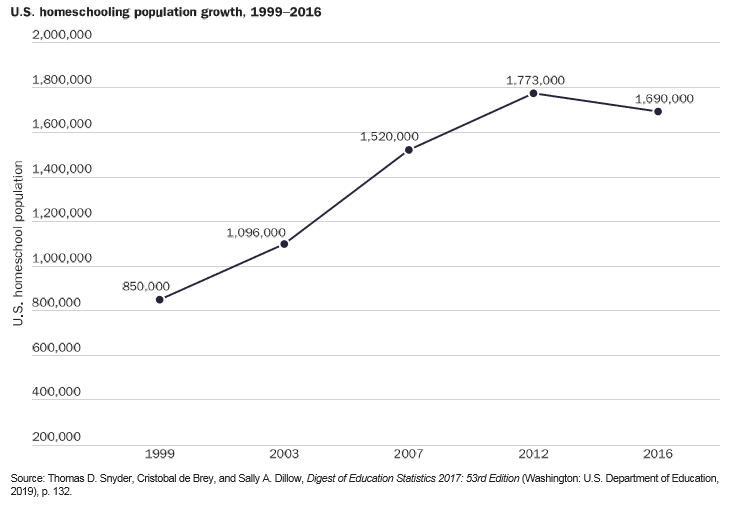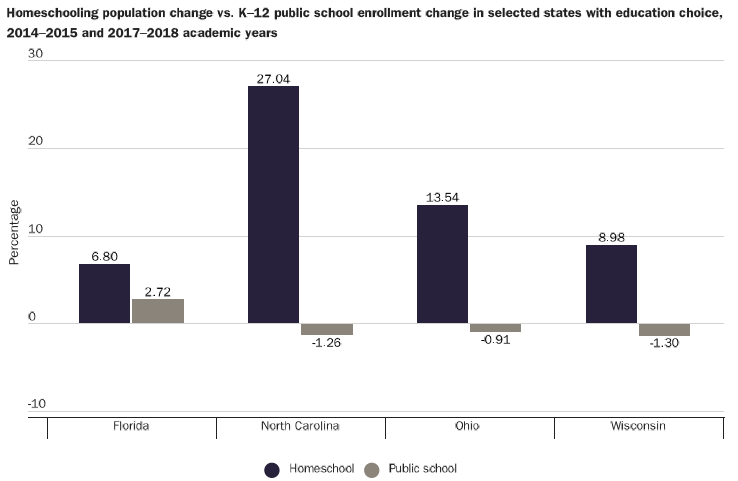 While recent national data suggest homeschooling growth may be slowing, a report issued this week by the Cato Institute concludes that the homeschooling population is increasing many times faster than the K-12 public school population in a number of states with particularly favorable education choice programs, including Florida.
While recent national data suggest homeschooling growth may be slowing, a report issued this week by the Cato Institute concludes that the homeschooling population is increasing many times faster than the K-12 public school population in a number of states with particularly favorable education choice programs, including Florida.
The report, “Homeschooling and Educational Freedom,” by Kerry McDonald of the Foundation for Economic Education, makes the case that school choice is good for the homeschool movement.

A deeper dive: Although the homeschool student population has doubled since 1999, enrollment is beginning to decline. Between 2012 and 2016, the latest data available, the home schooling population declined by 4.7 percent, while public school enrollment increased 1.6 percent. But several states leading the school choice movement are bucking that trend.
Who homeschools: Popular opinion sees homeschoolers as overwhelmingly white, rural evangelical Christians. But homeschooling has been embraced by the progressive left as well. The old stereotype is giving way as minorities increasingly are embracing home education, while homeschool students have become more urban and financially diverse.
Where homeschooling is growing: Florida, North Carolina, Ohio and Wisconsin all have robust charter school and school voucher programs, including several tax credit scholarships and education savings account (ESA) programs. These are states where homeschool population growth has greatly exceeded growth in public schools.
Florida, for example, offers the Gardiner Scholarship, an ESA program for students with special needs. The scholarship can be used to purchase school supplies and curriculum as well as fund dual enrollment courses and help pay for Florida Virtual School tuition.
Regulations in choice-friendly states may also play a role, such as allowing homeschool students to participate in clubs or sports at their local public school.
Why it matters: Texas, a Republican-controlled state with a meager charter school program and no vouchers, has seen homeschool parents ally with school district leaders to oppose expanding school choice through vouchers. Such home education parents have argued that vouchers would bring more regulations and scrutiny from the state legislature, ultimately hampering parents’ freedom to educate their children.
But McDonald’s findings suggest such opposition by homeschool parents is wrongheaded.
She speculates that there could be a peer effect with school choice. The more choices available, she suggests, the more people exercise a right to choose the education environment for their child, including the option to homeschool.
Writes McDonald: “Homeschoolers should support education choice programs, whether or not they are personally included in such programs, because more choice can lead to more homeschoolers overall.”


